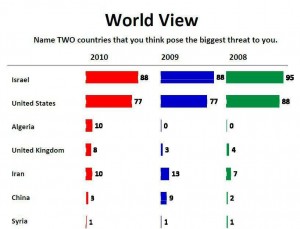Reginald Perrin: You realise the sort of people you’re going to attract, don’t you, Jimmy? Thugs, bully-boys, psychopaths, sacked policemen, security guards, sacked security guards, racialists, Paki-bashers, queer-bashers, Chink-bashers, anybody-bashers, rear Admirals, queer admirals, Vice Admirals, fascists, neo-fascists, crypto-fascists, loyalists, neo-loyalists, crypto-loyalists.
Jimmy Anderson: Do you think so? I thought recruitment might be difficult.
***
Friedman: “1st I’ll ask an insane question. Then claim it was rhetorical. Then immediately make it clear it was NOT rhetorical.” Lunch time!
— Billmon (@billmon1) March 18, 2015
With few exceptions (Iran nuke talks) US Middle East policy post 9/11 consists of throwing gasoline on fires, being surprised when it burns.
— Billmon (@billmon1) March 18, 2015
Juan Cole’s Tom Friedman & funding ISIL: Israel/Iran Derangement Syndrome is a pretty compelling read.
I don’t agree with everything Cole says, and haven’t forgotten his support for Obama’s non-Constitutional “kinetic action” in Libya, nor his “letter to the left.” His position was not short on nuance, but Libya is a disaster today, though surely it’s cheering for those who like their middle eastern nations in flames.
Thomas Friedman’s more-puzzling-than-usual column from midweek, in which he wondered aloud whether the West should be arming ISIL, led to more than a few hot takes asserting Friedman had lost it, and was floating that balloon out of ignorance and/or dementia. I beg to differ: I think he knew exactly what he was saying.
Between Obama’s pending rapprochement with Iran and the cooperation between US and allied militaries in bombing ISIL combatants (and countless more collateral persons of no interest), there lurks the possibility of peace breaking out in the Middle East. Well, OK, peace is not really in the works, but there remains the chance the U.S. will stall out on its accidental/on purpose mission to take down every proper country in the region that doesn’t kowtow to U.S./Israeli domination.
Cole:
What accounts for [Friedman] being in this category of Daesh-supporters when he is not a conservative (in the American political sense of conservative)? It is his Zionism. For Israel, Daesh is just a manifestation of chaos and not threatening to Israel which has the best military in the Middle East. But for many Israelis and supporters of Israel, it is the big conventional rejectionist states and armies with their potential for nuclear weaponry that are the real danger. That is why Friedman supported Bush’s Iraq War, as well. Apparently, for this strain of Zionism, the Middle East has to be in flames and broken up by constant American military invasions and special ops covert actions and coups in order to keep Israel from having any peer militarily in the region. Daesh is just a set of gangs and aids in keeping Syria and Iraq in chaos, so from this point of view, it is a good thing and should be armed to cause more chaos.
It is a monstrous point of view that would come as a surprise to most Americans when put like this, but all Middle Easterners understand that it is exactly the kind of policy Israeli hawks pursue and urge the US to pursue.
Yesterday morning in the Post David Petraeus was not miles away from what Friedman was jokingly-but-not-really suggesting. Suddenly, the ISIL threat has been downgraded from Existential/Kill Them All to Maybe We Should Be Friends.
Watch the pundits go along with this 180-degree turn. Will the prospect of peace breaking out reclaim its rightful place as Public Enemy Number One? That’s been the safe bet for a while now.






